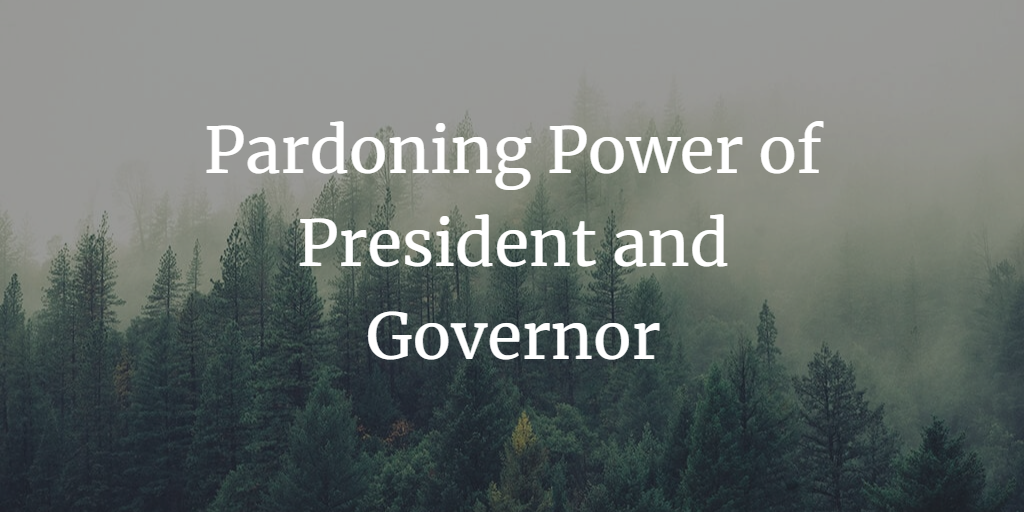Pardoning Power of President and Governor in India

The President and Governor in India possess the power to grant pardons or commute sentences under the Indian Constitution. This blog post will explore the pardoning power of the President and Governor, focusing on the constitutional provisions, types of pardoning powers, and the key factors and limitations that govern this authority.
Table of Contents
Constitutional Provisions
Types of Pardoning Powers
Key Considerations in Exercising Pardoning Power
Limitations and Judicial Review
Conclusion
1. Constitutional Provisions
The pardoning power of the President and Governor in India is enshrined in the Indian Constitution:
President's Pardoning Power: Article 72 of the Constitution empowers the President to grant pardons, reprieves, respites, or remissions of punishment, or to suspend, remit, or commute the sentence of any person convicted of an offense:
Against any law relating to a matter on the Union List
Under any law providing for the punishment of offenses committed in connection with the affairs of the Union
By a court-martial
By a military court or tribunal
Governor's Pardoning Power: Article 161 of the Constitution grants similar pardoning powers to the Governor of a state, with the authority to grant pardons, reprieves, respites, or remissions of punishment, or to suspend, remit, or commute the sentence of any person convicted of an offense against any law relating to a matter on the State List.
2. Types of Pardoning Powers
There are five types of pardoning powers exercised by the President and Governor:
Pardon: Completely absolves the convict from the sentence and any associated disqualifications.
Reprieve: Temporarily suspends the execution of the sentence, allowing the convict to seek relief or present new evidence.
Respite: Reduces the sentence on the grounds of special circumstances, such as illness or pregnancy.
Remission: Reduces the duration of the sentence without changing the character of the punishment.
Commutation: Substitutes the original punishment with a lesser punishment.
3. Key Considerations in Exercising Pardoning Power
The President and Governor must exercise their pardoning power with due care and consideration. Some key factors that may influence the decision to grant a pardon or commute a sentence include:
Nature of the offense: The severity and circumstances of the offense are critical factors in determining whether a pardon or commutation is appropriate.
Conduct of the convict: The behavior and character of the convict during the trial and imprisonment can influence the decision to grant a pardon or commute the sentence.
Miscarriage of justice: In cases where there is a possibility of miscarriage of justice, the pardoning power may be exercised to correct the error.
Humanitarian grounds: Pardoning powers can be exercised on humanitarian grounds, such as the advanced age or ill health of the convict, or to avoid undue hardship to the convict's family.
4. Limitations and Judicial Review
While the President and Governor have wide discretion in exercising their pardoning powers, there are certain limitations and scope for judicial review:
Scope of power: The Governor cannot grant pardons or commute sentences in cases where the punishment is imposed by a court-martial, whereas the President can exercise the pardoning power in all cases, including those involving court-martial sentences.
Judicial review: The pardoning power is subject to judicial review to ensure that it is exercised in a fair and just manner. The courts can review the decision if it is found to be arbitrary, discriminatory, or based on irrelevant considerations.
5. Conclusion
The pardoning power of the President and Governor in India is a vital constitutional provision that enables the highest authorities in the country to grant mercy or commute sentences in deserving cases. By understanding the constitutional provisions, types of pardoning powers, key considerations, and limitations, we can appreciate the critical role that this power plays in ensuring justice and fairness in the Indian legal system. However, it is essential that this power is exercised judiciously and transparently, with due regard for the principles of justice and the rights of the convicts involved.


